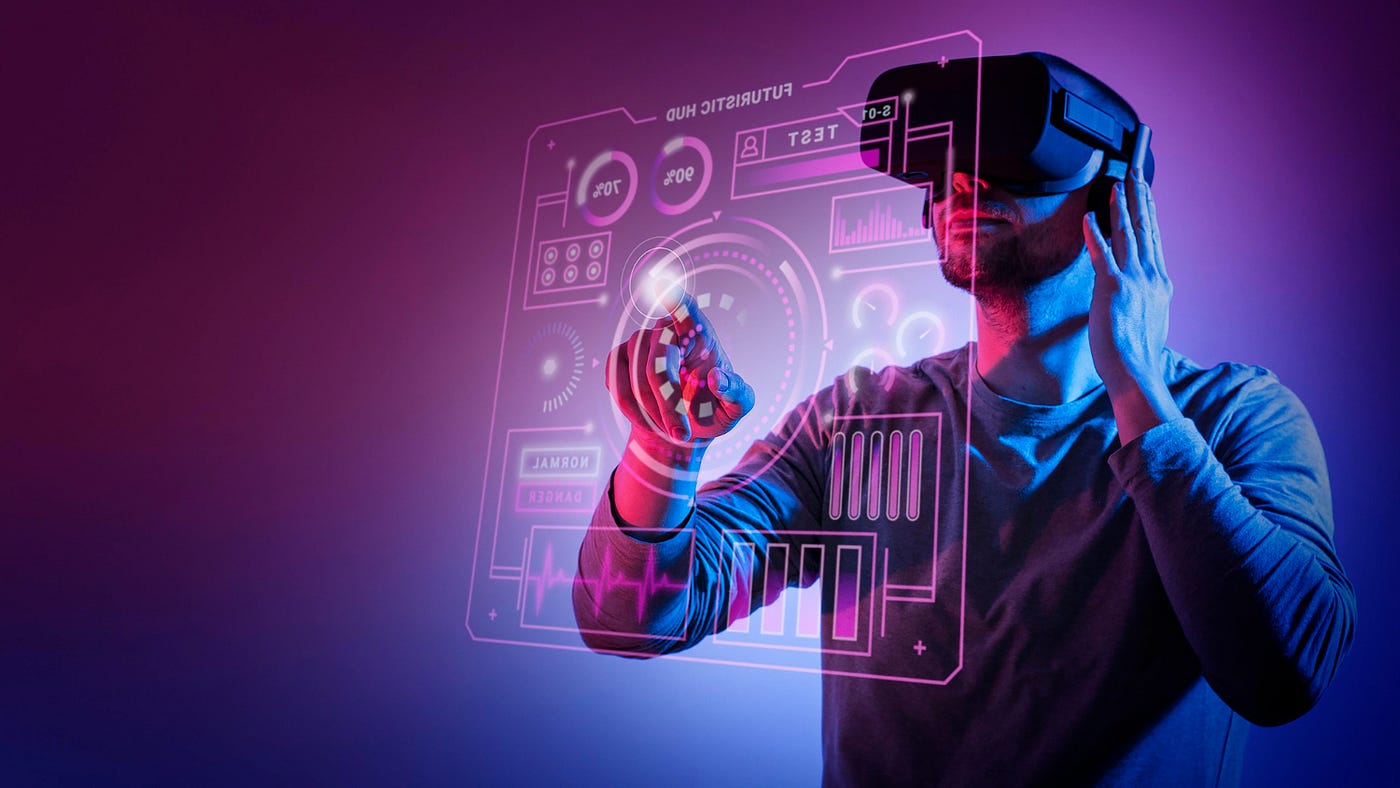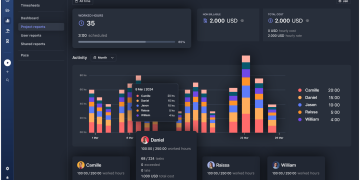Introduction
In an age where digital technology is ever-evolving, our perception of the “horizon” has undergone a dramatic transformation. Traditionally, the horizon was a physical boundary—a line where the earth and sky met, signaling the limits of our vision. But in today’s hyper-connected world, the horizon is no longer confined to the natural world. It now represents a shifting point of opportunity, innovation, and the expanding boundaries of knowledge.
This article will explore how the digital revolution has reshaped our understanding of the horizon, not only as a metaphorical concept but as a practical reality in the fields of technology, communication, science, and culture. From virtual horizons in the realm of cyberspace to new frontiers in artificial intelligence, the horizon in the digital age is as fluid and multifaceted as the technologies that define it.
The Horizon as a Metaphor for Digital Boundaries
In the pre-digital world, the horizon served as a limit—a far-reaching boundary beyond which few dared to venture. The physical horizon, framed by mountains or oceans, marked the edge of human exploration. However, in the digital age, this concept has morphed into something much more dynamic.
The digital horizon no longer represents a definitive boundary. Instead, it symbolizes an ever-expanding frontier, constantly pushed further by advances in technology and human ingenuity. The term “horizon” has transcended its physical meaning to embody the realm of possibility—what we can achieve, learn, and explore in a world where the limits are constantly shifting.
This new horizon is not static. It is malleable, changing with the development of virtual realities, quantum computing, and data-driven discoveries. As we continue to innovate, the digital horizon moves in tandem, offering new opportunities while simultaneously presenting new challenges.
Digital Transformation: Blurring the Lines
One of the most significant ways the digital age has redefined the horizon is through the phenomenon of “digital transformation.” In business, education, healthcare, and society at large, digital tools have redefined the way we interact with the world. The digital horizon, in this context, is not a physical boundary but an evolving framework that offers endless possibilities for growth and innovation.

1. Digitalization of Communication
The communication horizon has been stretched to new lengths. With the rise of social media, instant messaging, and video conferencing, distance is no longer a barrier to interaction. We can communicate across continents in real-time, breaking down geographic, cultural, and language boundaries. The global “village” predicted by Marshall McLuhan in the 1960s is now a reality, and the horizon of human connectivity is as vast as it is instantaneous.
2. The Digital Economy and AI
Artificial intelligence (AI) and machine learning have expanded the horizon in the economic landscape. The rise of automation, robotics, and AI-powered algorithms is reshaping industries from finance to healthcare, from retail to logistics. The digital economy is not merely a collection of online transactions; it is an intricate network of interconnected technologies that continually pushes the boundary of what is possible in business and commerce.
In AI’s context, the horizon is also an ethical landscape. As we delve deeper into the potential of AI, we must consider how algorithms affect decision-making, privacy, and human autonomy. This is a new frontier where technology meets morality—a domain where we must tread carefully.
3. Virtual Realities and Augmented Horizons
In the realm of entertainment, virtual reality (VR) and augmented reality (AR) have completely transformed the way we experience content. The traditional boundaries of physical space are being blurred. VR immerses us in entirely new worlds, while AR enhances our perception of the real world by overlaying digital elements.
The digital horizon here is not only about the expansion of technological possibilities but also about the redefinition of what constitutes reality itself. We are no longer limited by the constraints of our physical senses. The horizon in this context becomes a gateway to new dimensions—experiences that were once purely the stuff of science fiction are now within our reach.
The Ethics and Challenges of the Digital Horizon
As we continue to explore and redefine the horizon in the digital world, we must also confront the ethical dilemmas and challenges that arise. While the digital revolution brings unprecedented opportunities, it also raises significant questions about privacy, data security, digital divides, and the impact of technology on society.
1. Privacy and Data Security
In an era where everything from our personal preferences to our health data is collected and stored digitally, the horizon of privacy is constantly in flux. What happens to our data when we entrust it to tech companies? How can we protect ourselves from cyberattacks, identity theft, and digital surveillance? The digital horizon demands a new framework for cybersecurity and data protection.
2. The Digital Divide
The notion of the horizon also brings into focus the stark divisions in digital access. While urban areas and affluent populations enjoy seamless access to high-speed internet, rural regions and economically disadvantaged groups still face significant barriers. The digital divide is not just a technological issue; it’s a social one, with far-reaching implications for equality and access to resources.
3. Artificial Intelligence and Bias
As AI continues to evolve, so too does the potential for it to perpetuate biases. Algorithms are only as unbiased as the data they are trained on, and without careful monitoring, AI can reinforce existing prejudices in society. The horizon of AI must be managed responsibly to ensure that its benefits are realized without exacerbating inequality or injustice.

The Role of Innovation in Shaping the Horizon
In the digital age, innovation plays a crucial role in defining the horizon. Technology does not simply expand the frontier of what is possible; it continuously reshapes the very contours of our expectations. With each new technological breakthrough, we gain the ability to imagine a new future—one that was once considered out of reach.
1. Space Exploration and the Digital Frontier
The frontier of space exploration is perhaps the most literal example of a “horizon” that humanity is continually pushing forward. With companies like SpaceX leading the charge, space is no longer the realm of government agencies alone. Commercial spaceflight is becoming a reality, and the digital tools that power these efforts—from advanced data analytics to real-time communication systems—are pivotal in expanding our reach beyond the Earth.
The digital tools we develop to explore space may, in turn, benefit life on Earth, influencing areas such as medicine, environmental monitoring, and climate science. The horizon of space exploration is intertwined with the digital horizon, offering new possibilities for research and innovation.
2. Sustainability in a Digital World
As the world faces pressing environmental challenges, the digital horizon must also encompass sustainability. Technology can be a powerful tool in addressing climate change, from using data analytics to optimize energy consumption to harnessing AI for environmental conservation efforts. The horizon in this case is a balanced one, where innovation and progress work hand-in-hand with environmental responsibility.
Conclusion: Expanding Horizons, Navigating New Realities
In a digital age, the horizon is no longer a distant, fixed point. It is an ever-expanding boundary, pushed forward by the rapid development of new technologies and the limitless creativity of human beings. We are continuously redefining what is possible and breaking through barriers that once seemed insurmountable.
But with this expansion comes responsibility. As we push the digital horizon ever further, we must ensure that we are doing so in a way that is ethical, equitable, and sustainable. The horizon is no longer just a boundary to be crossed—it is a space to be shaped, navigated, and understood in all its complexity.























